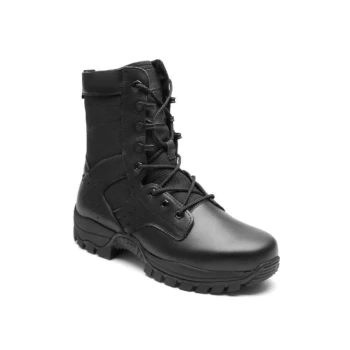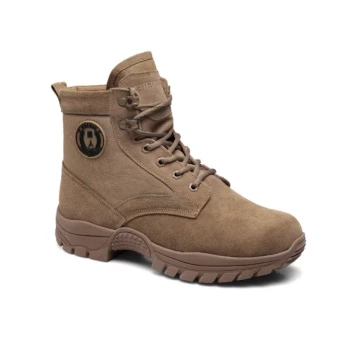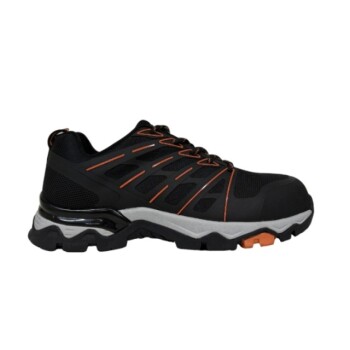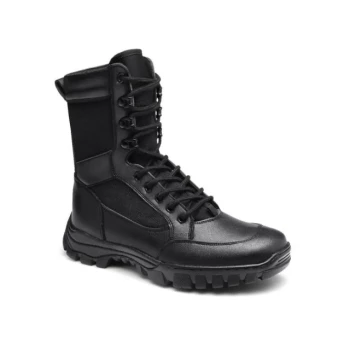Identifying a truly high-quality, eco-friendly welly requires looking beyond a single material. The key features are a combination of durable, natural rubber construction, verifiable ethical manufacturing practices, a clear plan for the product's end-of-life, and functional design elements that ensure longevity and performance.
The most sustainable welly isn't just made from better materials; it's a durable, well-crafted tool made by a transparent company that considers the entire product lifecycle, from ethical sourcing to responsible disposal.
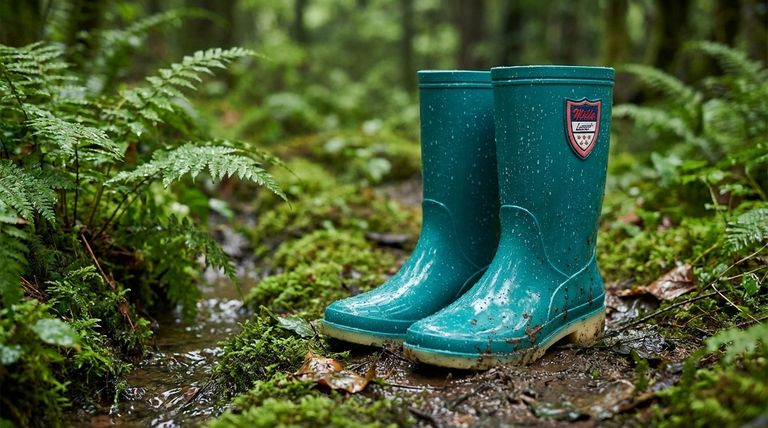
The Foundation: Material Matters
The material used to construct the boot is the most fundamental aspect of its environmental footprint and its performance.
Natural Rubber: The Gold Standard
Natural rubber is the preferred material for eco-friendly wellies. It is a renewable resource harvested from trees, and unlike synthetic alternatives, it is biodegradable. High-grade natural rubber is also inherently waterproof, flexible, and highly durable.
Avoiding Problematic Materials
Traditional wellies are often made from polyvinyl chloride (PVC), a plastic derived from fossil fuels that releases harmful toxins during production and disposal. Similarly, some fashion boots use leather, which involves an intensive and often polluting tanning process.
Beyond the Material: Indicators of True Quality
A sustainable product that fails quickly is not sustainable at all. True quality is defined by construction and design features that extend the boot's useful life.
Durability and Functional Design
Look for features like reinforced toes and heels, which protect against scuffs and wear in high-impact areas. A high-traction grip sole is crucial for safety and performance, indicating a design built for real-world use.
Adjustability and Comfort
High-quality wellies often include adjustable buckles or side gussets to ensure a snug, comfortable fit. For extended use, a breathable fabric lining, such as cotton, helps manage moisture and improves overall comfort.
Assessing Ethical and Environmental Impact
A brand's practices are just as important as the materials they use. This is where you separate genuinely responsible companies from those simply using "eco-friendly" as a marketing term.
Ethical Manufacturing Certifications
Trustworthy brands often seek third-party certifications to verify their claims. Look for credentials that ensure fair labor practices and safe working conditions in their factories.
Brand Transparency
A truly sustainable brand is transparent. Check their website for a clear, detailed sustainability policy that outlines their sourcing, manufacturing, and waste reduction efforts. Vague claims are a red flag.
End-of-Life Planning
The best brands consider what happens to their boots when they wear out. Look for information on whether the wellies are recyclable or if the company offers a take-back program for old pairs.
Understanding the Common Pitfalls
Navigating the market for sustainable goods requires a critical eye. Being aware of potential downsides and marketing tactics is key to making an informed choice.
"Greenwashing" Red Flags
Beware of brands that use ambiguous terms like "eco-friendly" or "green" without providing specific evidence. True sustainability is backed by details about materials, certifications, and supply chain practices.
The Durability Equation
A boot that lasts for a decade is inherently more sustainable than one that biodegrades in a year but needs constant replacement. Prioritize longevity and durability first, as this dramatically reduces consumption and waste.
The Upfront Cost
Ethically sourced natural rubber and responsible manufacturing cost more than mass-produced plastics. Expect to invest more upfront for a high-quality, eco-friendly welly, but view it as a long-term purchase that avoids the cost of frequent replacements.
Making the Right Choice for Your Goal
Select a boot by aligning its features with your primary requirements.
- If your primary focus is maximum durability and performance: Prioritize boots made from thick, high-grade natural rubber with reinforced construction and deep sole treads.
- If your primary focus is ethical and environmental impact: Look for brands with transparent supply chains, fair labor certifications, and established recycling or take-back programs.
- If your primary focus is everyday comfort and casual use: Seek out options with breathable linings and adjustable features for a secure, comfortable fit during extended wear.
A truly sustainable choice is a high-quality boot you will use for years, made by a brand that respects both people and the planet.
Summary Table:
| Feature | Why It Matters |
|---|---|
| Natural Rubber | Renewable, biodegradable, and highly durable. |
| Reinforced Toes/Heels | Protects against wear, extending the boot's life. |
| Ethical Certifications | Ensures fair labor and safe manufacturing practices. |
| End-of-Life Plan | Look for recyclability or brand take-back programs. |
| Adjustable Fit & Breathable Lining | Ensures comfort and performance for extended use. |
Ready to source high-quality, eco-friendly wellies for your business?
As a large-scale manufacturer, 3515 produces a comprehensive range of durable footwear for distributors, brand owners, and bulk clients. We specialize in creating wellies that meet the highest standards of sustainability, using premium natural rubber and ethical manufacturing processes. Our production capabilities encompass all types of shoes and boots, ensuring you get a product built to last.
Contact us today to discuss your specific needs and discover how we can deliver value to your brand and customers.
Visual Guide
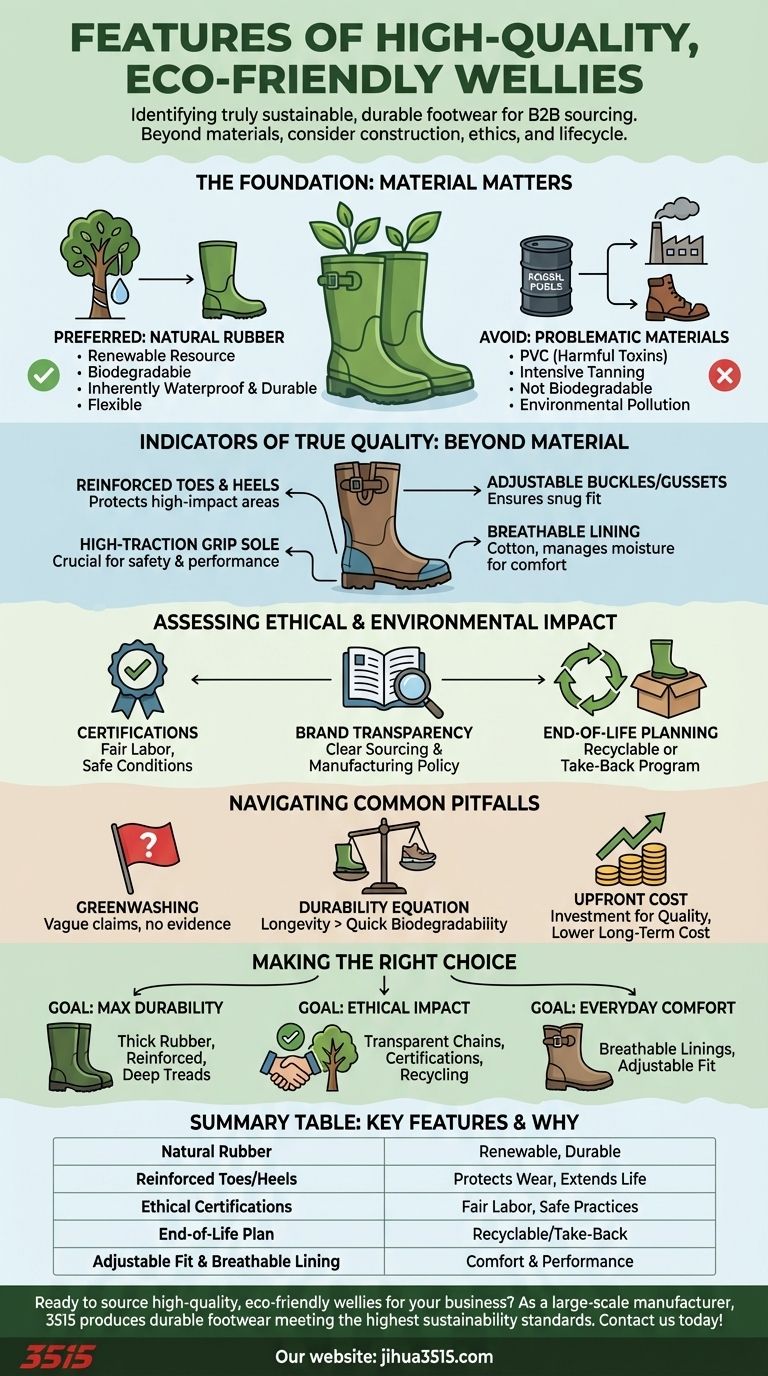
Related Products
- Factory Direct Wholesale Rain Boots Durable Waterproof & Fully Customizable
- Factory-Direct Wholesale Canvas Boots with High-Traction Rubber Soles
- Safety Footwear Wholesale Manufacturer for Custom OEM/ODM Production
- Wholesale High-Traction Camo Boots - Custom Manufacturer for Brands
- High Performance Fire-Retardant Waterproof Safety Boots
People Also Ask
- How can you restore shine to dried-out rubber boots? A Simple Guide to Reviving Your Footwear
- What are wellington boots commonly used for today? From Work Sites to Fashion Streets
- Should children's wellies be bought a size bigger? Prioritize Safety and Proper Fit for Healthy Feet
- What materials are modern Wellington boots made from? Natural Rubber vs. PVC Explained
- What material are PVC boots made from? A Guide to Their Pros, Cons & Best Uses
- Are PVC boots durable despite being lightweight? Yes, and Here's Why
- Why is thorough rinsing important after washing waterproof shoes? Preserve Performance & Longevity
- Are Wellington boots good for walking long distances? Choose the Right Footwear for Your Terrain








